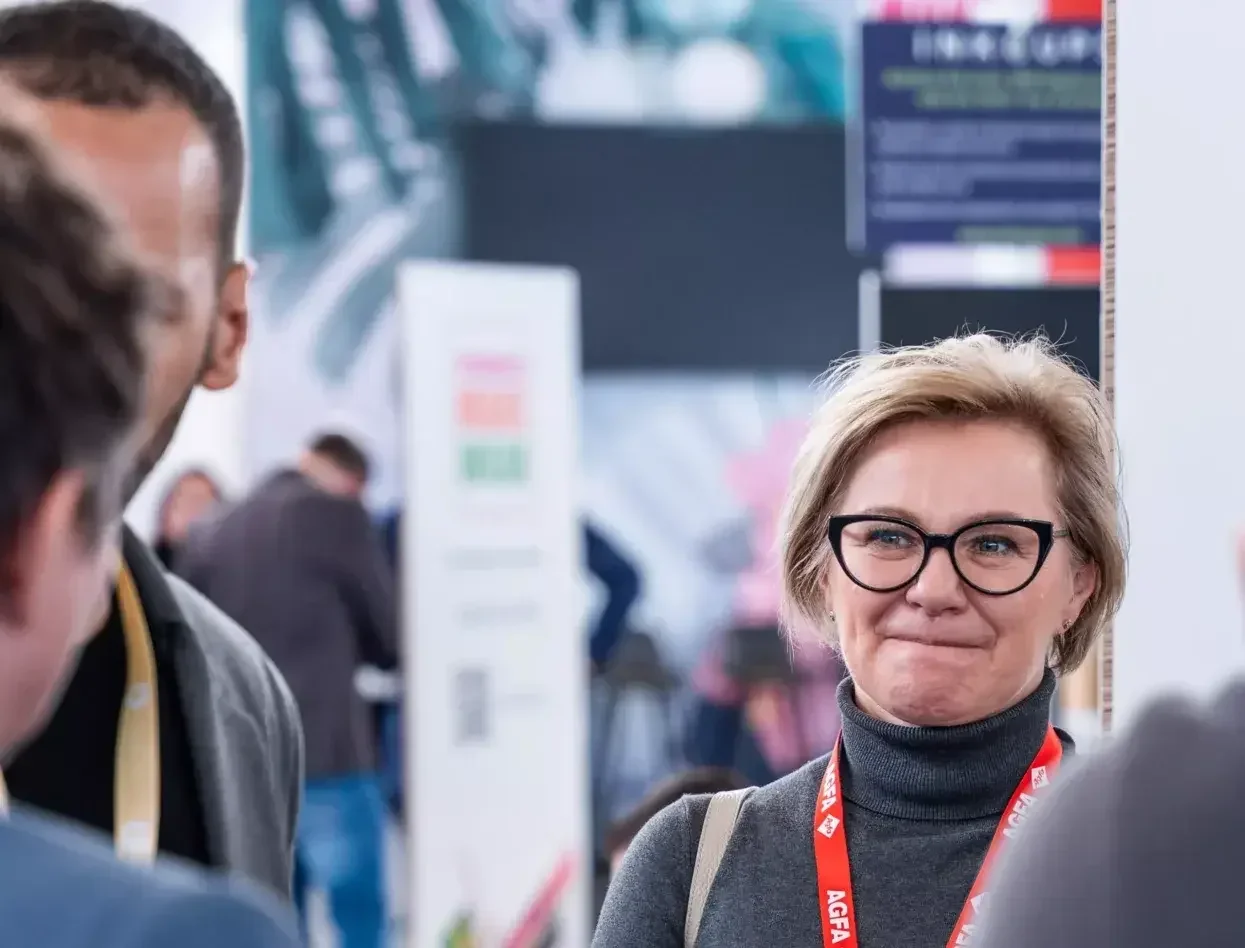
Debbie McKeegan speaks to industry experts at Personalisation Experience and Sportswear Pro 2024 held in Amsterdam. The experts discuss the future of manufacturing as the industry shifts to sustainable, environmental production.
Held at Personalisation Experience 2024 and Sportswear Pro 2024 in Amsterdam, the “Personalise Make Wear” feature showcased a live custom-built, end-to-end Smart Factory that manufactured customised, personalised sportswear on-demand. The feature signposted the future of manufacturing as the industry shifts to sustainable, environmental production.
During the show exhibitors and industry experts worked side-by-side to explore and demonstrate the disruptive, transformative technologies now available for digital manufacture. Hosted by FESPA Textile Ambassador, Debbie McKeegan visitors were able to join and experience expert tours and live demonstrations from the many industry experts and application specialists on-site for the duration of the show.
Each day specialists gathered at 13:00pm for a Fire-side chat. The excepts below detail the last of four conversations hosted by Debbie McKeegan with PMW partners, special guests and exhibitors in residence.
The final talk of the show concluded with an inspiring conversation centred on how to meet your clients’ expectations, how to rewire your workflow, and how to add automated technology and succeed in building a resilient supply chain for your business. Below we detail the key takeaways from our conversation. You can listen to the 25:00 min audio podcast here.
Special guests:
- Ian Bell – Manager EMEA at KornitX
- Sebastien Hansen – Vice President Marketing & Operations at Caldera
- Jayson Tompkins – CEO, founder at Stahls/Fulfill Engine
Collaboration in Digital Textile Manufacturing:
The necessity for collaboration among various stakeholders in the digital textile manufacturing ecosystem cannot be overstated. As the industry becomes increasingly interconnected, fostering partnerships among designers, technicians, and suppliers is paramount. This synergy not only enhances innovation but also improves efficiencies, allowing for the rapid adaptation to consumer demands and market changes. Facilitating collaborative environments through technology-enabled platforms that support real-time communication will be essential in driving forward-thinking solutions in the industry.
Harnessing the Power of Automation:
As we delve deeper into the future of textile manufacturing, automation emerges as a critical theme. Fulfill Engine aptly states, “Automation isn’t just about efficiency; it’s about empowering creators to push the boundaries of their imagination while streamlining processes.” This perspective highlights the dual advantage of automation—it not only optimizes production methods but also liberates designers and manufacturers to innovate without the constraints of traditional workflows. Embracing automated solutions will thus be instrumental in shaping a more agile and responsive textile industry, ready to meet the challenges of tomorrow.
Standardisation as a Tool for Consistency:
The lack of standardisation can lead to inconsistencies in production quality, which directly impacts brand reputation and consumer satisfaction. Establishing universal standards for various processes such as colour matching and material sourcing is crucial for ensuring that businesses can deliver a consistent product. Standardisation aids in streamlining operations, enhancing interoperability among different systems and devices, to offer a foundation upon which companies can scale up their production while maintaining high-quality output.
The Role of AI in Creativity and Intellectual Rights:
The integration of artificial intelligence into digital textile manufacturing is not just a technological advancement; it represents a paradigm shift in how creativity is approached. AI can streamline repetitive tasks and provide data-driven insights, enabling designers to focus on innovative and creative aspects of their work. However, this advancement also raises important questions regarding intellectual property rights. As AI-generated designs become more prevalent, the industry must grapple with the complexities of ownership and attribution, necessitating a forward-thinking approach to policy and frameworks that protect creative individuals while encouraging technological innovation.
Final Summary:
This final fireside chat at the Fespa PMW live smart factory offers a deep dive into the knowledge transfer required between technology and production. Without acute control – chaos reigns supreme in the manufacturing workflow. In conversation, speakers examined key topics such as collaboration, standardisation, and the integration of technology to improve production quality. They addressed important issues including colour management, workflow automation, and the influence of AI on creativity and intellectual property.
The conversation highlighted the current challenges and opportunities within the industry, emphasising the necessity for a strategic approach to technology adoption to meet the changing demands of consumers.
Personalisation Experience 2025, Europe’s only event focused on personalisation in print to bring mass customisation to your customers will return from 6 – 9 2025 at Messe Berlin, Germany. Register your interest to visit here.